Dental Implant in Phuket
Search and Compare the Best Clinics and Doctors at the Lowest Prices for Dental Implant in Phuket
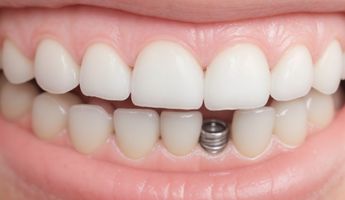
Find the best clinics for Dental Implant in Phuket
With Medijump you can browse 6 facilities offering Dental Implant procedures in Phuket. The cheapest price available is $83 in Bangkok
Dental Implant in Thailand
Price: $ 83
Dental Implant in Bangkok
Price: $ 83
Dental Implant in Rayong
Price: $ 695
Vietnam offers the best prices Worldwide
Price: $ 1
From 35 verified reviews
Gemma, 02 June 2024
The dentists are highly knowledgeable and took the time to explain all my options in detail.
From 3 verified reviews
Pita joya, 26 August 2024
Good service.
From 2 verified reviews
Arianna, 18 August 2024
The dental package was fantastic! The staff was friendly, and my teeth have never felt cleaner. Highly recommend!
From 2 verified reviews
Francoise, 27 August 2024
The staff were incredibly friendly and made me feel comfortable throughout the entire process. My dental implant bar looks amazing.
From 2 verified reviews
Kamalei, 27 August 2024
Excellent dental clinic! The team is skilled and the atmosphere is very relaxing. Will definitely return.
From 98 verified reviews
Bastina, 27 August 2024
My tooth filling was quick and painless. The dentist made me feel comfortable throughout the process. Highly recommend!
Compare Before & After Photos of _procedure_photos.phpDental Implant

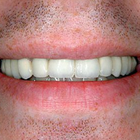
Front view


Front view
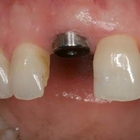
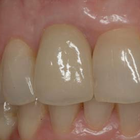
Front view
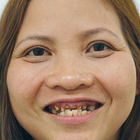

Front view


Front view
WHY US?
At Medijump, we're making medical easy. You can search, compare, discuss, and book your medical all in one place. We open the door to the best medical providers worldwide, saving you time and energy along the way, and it's all for FREE, no hidden fees, and no price markups guaranteed. So what are you waiting for?

Free

Best Price

Widest Selection

Risk-Free
What you need to know about Dental Implant in Phuket

A dental implant is a medical device that provide support to artificial teeth. It's surgically placed into the jaw to act as a replacement for the root of a missing or damaged tooth, which in turn serves to hold a replacement tooth or bridge. It functions and looks much like a real tooth, restoring your ability to chew and improves your overall appearance. Dental implant surgery is considered as a better alternative to dentures or bridgework that does not fit well. It also offers a great option for people when they do not have enough natural teeth roots left to build denture or bridgework replacements.
Since dental implants eventually fuse with your jawbone over the span of several months, it won’t make noise, slip, or cause bone damage the way dentures or bridgework might. Dental implants also enable natural speech, look and feel like your own teeth, make eating easier, and improves your appearance. However, the surgery may involve several stages, and, in some cases, it may require two separate visits to the clinic to complete. Ensure to look for a specialist in a reputable clinic for the best results.
What is the cost of Dental Implant in Phuket?
Price differences abound in Phuket for Dental Implant based on the clinic, the proficiency of the surgeon, and the individual requirements of the patients. It's essential to realize that dental insurance usually doesn't cover the entire bill for this treatment, though it might cover a part. Several dental clinics provide finance schemes or payment alternatives to assist in easing the financial burden. For more precise cost estimates, reach out to your dental service provider or a nearby clinic.
What does a Dental Implant Procedure Involve?
Dental implant surgery generally requires several stages. Each stage may be performed under general or local anesthetic. The first stage is removing the damaged tooth. Then, if your jawbone is too soft or not thick enough, your dentist may perform bone grafting to create a more solid base for the implant. The bone graft may be natural (taken from another part of your body) or synthetic (a bone-substitute material). If you only need minor bone grafting, the implant surgery can be performed on the same day. However, if you need a significant amount of bone graft, the implant surgery may have to be postponed until the transplanted bone grows enough new bone to support the dental implant.
The next stage after the damaged tooth removal and bone graft (if you need one) is placing the dental implant. To do this, your dentist makes an incision to expose the bone and puts the metal implant post deep into the bone. At this stage, you will still have a gap where your tooth is missing. Your dentist will place a temporary denture for appearance. Once the metal implant post is placed, osseointegration begins. This is a process where the jawbone grows into the surface of the implant and can take several months to complete. After osseointegration is complete, your dentist will place the abutment, which is a small connector post that will hold your new tooth. The final stage, after the abutment is placed, is placing the crown, which is the tooth-looking part. You can choose between a removable crown and a fixed crown.
How Long Should I Stay in Phuket for a Dental Implant Procedure?
The length of your stay in Phuket for a Dental Implant depends on numerous considerations like the intricacies of the procedure, the quantity of implants required, and your personal recovery process. Each stage of dental implant surgery is done in separate appointments. After each appointment, you should be able to leave the hospital or clinic right away. However, you should stay in Phuket for at least 2 weeks for completion of the work, the initial recovery time, and follow-up checkups.
What's the Recovery Time for Dental Implant Procedures?
The recuperation duration following a Dental Implant or dental implant operation can widely vary and is shaped by multiple aspects. Initial healing of the tissue might require only a handful of days, but complete osseointegration (the fusion of the implant with the jawbone) generally spans several months. This window could be extended for patients requiring auxiliary procedures such as bone grafts, or those with prevailing health issues that may impede the healing process.
Post-procedure, it's not unusual to experience a degree of discomfort, which could manifest as minor pain, swelling of your gums and face, skin and gum bruising, and slight bleeding. Such symptoms are a standard phase of the recovery process and should alleviate within a fortnight. In this interim, it's advisable to stick to a soft diet to not overload the implant site with undue pressure. Any strenuous physical exertion should be put off to circumvent potential complications.
Maintaining excellent oral hygiene is paramount to facilitate healing and stave off infection. Regular brushing and flossing, being particularly gentle around the surgical area, coupled with rinsing your oral cavity with warm saline water, can contribute to keeping the region hygienic.
What sort of Aftercare is Required for Dental Implant Procedures?
After each stage of surgery, you may have to eat soft foods. Since you may experience swelling, bruising, pain, and minor bleeding, your dentist will prescribe pain medications or antibiotics to help ease your discomfort. During your recovery period, you need to avoid smoking as it can contribute to implant failure and complications.
No special care is required for dental implants. Nonetheless, you need to practice good oral hygiene in order to maintain the implant and your remaining natural teeth. Make sure to brush your teeth twice a day, floss daily, and rinse your mouth with an antiseptic mouthwash. You also need to see your dentist regularly and avoid damaging habits, such as chewing hard items.
What's the Success Rate of Dental Implant Procedures?
The efficacy of Dental Implant, alternatively referred to as dental implants, in Phuket, is typically impressive, boasting effectiveness percentages as high as 98% in some studies. This positions dental implants as one of the most reliable procedures within dental care's realm. Nevertheless, it's worth mentioning that the success rates might fluctuate, influenced by several factors.
The patient's overall health is a key determinant of the thriving outcome of a dental implant procedure. Individuals exhibiting optimal health usually witness higher success rates. Pre-existing health issues like diabetes, osteoporosis, and periodontal ailments can theoretically impact the efficacy of the implant.
Additional contributing factors to the success rate encompass the quality and abundance of the individual's bone structure. Patients boasting plentiful, healthy bone are ordinarily the perfect candidates for dental implants. However, those who have experienced bone loss might need to undergo a bone grafting procedure before the implant procedure. This step can provide a robust base for the implant and enhance the chances of a successful result.
Are there Alternatives to Dental Implant Procedures?
If you are not a candidate for dental implant surgery, or you simply do not want to undergo the procedure, you can opt for the alternatives. The alternatives include:
- Mini dental implants, which is a small type of dental implants. The structure is similar to regular dental implants, but are somewhat smaller in size. Unlike regular dental implants, dentists can often place mini implants only in one visit using local anesthesia. You may also be able to use your new teeth on the same day.
- A same-day implant is essentially similar to traditional dental implants. However, your dentist performs the whole process in just one day, skipping the process of wound healing and osseointegration.
- Implant-supported dentures or All-on-4 is an alternative if you need to fix a complete upper or lower set of teeth. During this procedure, four to six implants are placed into your jawbone as a base to attach and stabilize your denture.
What Should You Expect Before and After the Dental Implant Procedure?
Grasping what lies ahead before and post the Dental Implant can lessen potential worries and guarantee you are fully equipped for the upcoming journey. Prior to the procedure, your dental practitioner will conduct an all-inclusive dental assessment. This check-up may encompass dental X-rays and sophisticated 3D imaging to examine the status of your oral cavity.
The dental professional will also explore your medical history. If you're suffering from specific heart disorders or orthopedic implants, your dental practitioner might suggest antibiotics to avert infection. A personalized treatment blueprint, customized to your circumstances, will be constructed. This strategy takes into account factors like the amount of teeth you need substituted and the state of your jawbone. The procedure is typically carried out under local anesthesia to mitigate any discomfort.
Subsequent to the operation, experiencing slight unease is usual. You might witness inflammation of your face and gums, discoloration of your skin and gums, soreness at the insertion area, and insignificant bleeding. Your dental specialist will recommend medications to soothe these indicators. In case inflation, unease, or any other complications intensify in the days post-operation, it's crucial to reach out to your oral surgeon. Post-operation will require you to consume mushy foods as the operated site recovers. Moreover, you'll be guided to abstain from smoking, as it can hinder recovery and influence the triumph of the dental implant.
Following the positioning of the implant, the healing process, and fusion with the bone (osseointegration) transpire over an extended period. During this interval, maintaining robust oral cleanliness is vital. This involves frequent brushing, the use of dental floss, and cleansing with an antibacterial mouthwash. Periodic dental examinations are obligatory to track progress and confirm the well-being and effectiveness of the implant.
What are Potential Risks of Dental Implant?
Despite Dental Implant boasting remarkable effectiveness, it is, as any surgical operation, not without risks and potential difficulties. The chances of encountering these issues are often minute and irregularities are infrequent, yet it remains critical for patients to comprehend these possibilities before undertaking the procedure.
Complications and side effects may include:
- Implant failure
- Nerve injury
- Infection
- Sinus problems
- Damage to surrounding structures, such as other teeth or blood vessels
How long does a Dental Implant last?
The durability of a Dental Implant is heavily reliant on the individual's oral cleanliness and general wellbeing. Nonetheless, with appropriate upkeep and care, dental implants have the potential to stand the test of time. The titanium pillar inserted into the jawbone during surgery is crafted to be everlasting, while the dental cap fastened to the anchor may necessitate substitution every decade or decade and a half due to normal usage. Yet, with outstanding dental management and habitual screenings, the cap has the potential for lifelong endurance.
Whilst the information presented here has been accurately sourced and verified by a medical professional for its accuracy, it is still advised to consult with your doctor before pursuing a medical treatment at one of the listed medical providers
No Time?
Tell us what you're looking for and we'll reachout to the top clinics all at once
Enquire Now

Popular Procedures in Phuket
Prices Start From $1

Prices Start From $1

Prices Start From $48

Prices Start From $1

Prices Start From $1

Prices Start From $11

Prices Start From $1

Prices Start From $45

Recommended Medical Centers in Phuket for Dental Implant

- Interpreter services
- Translation service
- Religious facilities
- Medical records transfer
- Medical travel insurance
- Health insurance coordination
- TV in the room
- Safe in the room
- Phone in the room
- Private rooms for patients available

- Interpreter services
- Translation service
- Religious facilities
- Medical records transfer
- Medical travel insurance
- Health insurance coordination
- TV in the room
- Safe in the room
- Phone in the room
- Private rooms for patients available

- Interpreter services
- Translation service
- Religious facilities
- Medical records transfer
- Medical travel insurance
- Health insurance coordination
- TV in the room
- Safe in the room
- Phone in the room
- Private rooms for patients available

- Interpreter services
- Translation service
- Religious facilities
- Medical records transfer
- Medical travel insurance
- Health insurance coordination
- TV in the room
- Safe in the room
- Phone in the room
- Private rooms for patients available

- Interpreter services
- Translation service
- Religious facilities
- Medical records transfer
- Medical travel insurance
- Health insurance coordination
- TV in the room
- Safe in the room
- Phone in the room
- Private rooms for patients available

- Interpreter services
- Translation service
- Religious facilities
- Medical records transfer
- Medical travel insurance
- Health insurance coordination
- TV in the room
- Safe in the room
- Phone in the room
- Private rooms for patients available

- Interpreter services
- Translation service
- Religious facilities
- Medical records transfer
- Medical travel insurance
- Health insurance coordination
- TV in the room
- Safe in the room
- Phone in the room
- Private rooms for patients available

- Interpreter services
- Translation service
- Religious facilities
- Medical records transfer
- Medical travel insurance
- Health insurance coordination
- TV in the room
- Safe in the room
- Phone in the room
- Private rooms for patients available
Dental Implant in and around Phuket
About Phuket
Phuket, Thailand’s largest island nestles in the Andaman Sea. The island is an incredible blend of beautiful beaches, lush green hills, mangroves and rainforests. The tin mining industry has been the major contributor to its economy since the 16th century. However, In recent years, the tourism industry and rubber production have developed as major industries which contribute to the economy.
But beyond its breathtaking beaches and sceneries, Phuket also boasts an exceptional infrastructure, including advanced property development and luxurious hotels and shopping malls, catering to the needs of every visitor. It offers a plethora of recreational and entertainment options to everyone willing to enjoy its beauty and ambience.
Phuket has quickly become a preferred destination for medical tourists worldwide due to the unparalleled quality and affordability of its healthcare services. Whether it's critical life-saving procedures or elective cosmetic surgeries, the medical care provided in this city is commendable. A significant factor in Phuket's appeal is the comparative cost efficiency - the expense of dental and cosmetic treatments, in conjunction with the costs of travel and accommodation, is significantly lower than similar expenditures in numerous other countries.
Furthermore, the exceptional aftercare services in Phuket are a key component of the fully-rounded healthcare experience. Patients receive top-notch care and attention during their recovery process, enabling quicker recuperation and return to health. In this wellness-centered environment, patients are both physically replenished and mentally rejuvenated in the tranquil, picturesque settings of Phuket.
The medical tourism sector in Phuket is also buoyed by the introduction of attractive and competitive all-inclusive packages offered by numerous medical tourism agencies. These packages ingeniously integrate health and holiday elements, affording medical tourists the chance to recover and relax simultaneously. Tourists are thus afforded the opportunity to enjoy Phuket’s awe-inspiring landscapes and leisure offerings even as they benefit from top-tier medical treatments.
Maintaining its high standards in healthcare, Phuket houses two of the region's top-ranking private hospitals - the Phuket International Hospital and the Bangkok Hospital Phuket. These institutions are renowned for their state-of-the-art medical facilities and services, and their proficient English-speaking doctors. Highly recommended for a range of procedures including Cosmetic Surgery, Lasik Laser Surgery, and dental treatments, they guarantee an excellent standard of care and professionalism.
Popular Areas in Phuket
For a truly immersive Thai experience, one can opt for a walking tour through the heart of Phuket town. On your journey, you will be charmed by the robust impression of the Sino-Portuguese houses, shophouses, and opulent mansions. This architectural splendour is a vivid testament to the Chinese and Portuguese influence that has shaped the island's identity since the 16th century.
In the next phase of the tour, you will traverse the meandering streets, where each corner beckons with a tale of its own. As you further explore the town, you'll see local shops selling traditional Thai goods, bustling markets brimming with fresh local produce, and small family-run restaurants serving authentic, scrumptious Thai cuisine. Each stop underscores the rich, cultural tapestry of Phuket and its unique blend of Thai, Chinese, and Portuguese cultures - a melting pot that has been simmering since the 16th century. It's more than just a tour; it's a delightful plunge into the vibrant history and palpable heritage of Phuket.
For a complete holiday feel, you can visit the numerous small islands around Phuket and visit Phang Nga Bay as it is a mesmerizing site with limestone cliffs jutting out of the turquoise blue waters. You can also try sea canoeing, as many grottoes are accessible only by canoes. Phang Nga Bay is home to the now-famous James Bond Island with its iconic large leaning rock. Patong Beach is the most popular beach resort on the island and is always full of people as the town is bustling with activity and hosts many bars, discos and restaurants serving International cuisine.
Imbued with a profound Buddhist legacy, the island of Phuket is dotted with an abundance of quaint Buddhist temples, each boasting its distinct charm. Standing proudly amongst them all is the illustrious "Big Buddha." This awe-inspiring marble statue graces the peak of a hill and captures the onlooker's attention with its towering stature of 150 feet in height and 85 feet in width, poignantly portraying Gautama Buddha in a serene sitting position.
As you draw closer, the Big Buddha’s elevated location offers panoramic views of Phuket that are genuinely unrivalled – a mélange of the blue-green sea, unbroken stretches of sandy beaches, and the verdant green of the island’s lush hilltops. It’s not just the scale of the statue that captivates visitors, but the soul-soothing tranquillity that pervades the area. Every detail, from the rhythmic chants that resonate through the air to the soft whispers of the winds, adds a spiritual depth to the site. Whether you're a follower of Buddhism or simply a traveller curious to explore, the towering Big Buddha invites you to contemplate the interconnectedness of life and nature, honouring the philosophical principles of Buddhism.
You will not be short of things to do as Phuket has many more islands, museums, the Khao Phra National Park and the Tiger Kingdom to visit.
Weather and Climate in Phuket
Phuket experiences a predominantly tropical climate wherein it's usually hot and humid for most parts of the year. The temperature consistently hovers at a high average of approximately 86 degrees Fahrenheit, making it an ideal destination for sun-seekers.
However, there is a welcome respite during the dry season, which spans from December to March. During this period, temperatures and humidity levels take a slight dip, becoming more agreeable and comfortable, making it the most popular time for tourists. Occasional brief showers may occur, but they do little to interrupt the enjoyment of the tropical paradise. Meanwhile, the southwest monsoon introduces the rainy season from May through to October. At this time, the island is subject to an average rainfall of around 87 inches, with the heaviest deluge typically occurring in May and the September-October timeframe.
Despite the precipitation, this period also offers its unique charm to visitors. The rains bring about a different kind of beauty to the island, with lush greenery awash with life and spectacular waterfalls seen in their full glory. Indeed, the rainy season can be an ideal time for those seeking fewer crowds, more solitude, and the chance to experience a more lyrical and poetic side of Phuket's tropical charm.
Getting Around in Phuket
Phuket International Airport is located north of the island and there are many frequent flights to and from Bangkok and other regional airports like Singapore and Kuala Lumpur. Seasonal flights operate from major cities in Europe and Australia, during peak tourist season.
Phuket International Airport has services from major International airlines such as Singapore Airlines, Cathay Pacific, Emirates, Qantas, Etihad, Air China, and Edelweiss Air.
For domestic travel, Nok Air, Thai Air Asia, Orient Thai, and Thai Lion Air operate flights from the domestic terminal of the airport.
Once you land in Phuket, there are many transport options available to you and you can take the Municipal air-con airport bus to Phuket Town bus terminal 1 for 100 Bahts. There’s also the airport shuttle to Patong Beach for 120 Bahts. Phuket smart bus is another service that operates to various islands at a fixed rate of 170 Bahts. The other option is the Minibus services, which operate every time a flight arrives. They charge between 100-200 Bahts.
You can also hire metered taxis from outside the airport. The average fare starts from 400 Bahts with an extra surcharge of 100 Bahts. You can also reach Phuket from Bangkok by private car. The Sarasin Bridge connects Phuket Island to the mainland.
To move around the island, you will need some mode of transport. Public and private bus services are available from the two bus terminals in Phuket. Long distance buses operate from the new terminal but these only connect Phuket Town to the beach towns.
In Phuket, reliable means of navigation around the beautiful island consist of tuk-tuks and taxis. Of these, the minivan-like tuk-tuks or Songtaews, distinguishable by their distinct red colour, are immensely popular. However, as these vehicles do not have meters, agreeing on the fare before beginning the journey is advisable.
On the other hand, metered taxis often turn out to be a less expensive choice compared to tuk-tuks. Despite this, during peak traffic hours, drivers often switch to flat rates. For reliable and reasonable fares, opt for taxi services associated with your hotel. Other alternatives to exploring the island include rental bikes, motorbike taxis, and traditional longtail boats, each offering a unique perspective of the stunning landscape.
Tourist Visas in Phuket
International tourists travelling to Phuket and other parts of Thailand must have a passport which is valid for at least six months over and above their period of stay.
On the other hand, Effective September 25, 2023, Thailand has granted a temporary tourist visa exemption to passport holders of the People's Republic of China and the Republic of Kazakhstan. This visa exemption is valid until February 29, 2024. Also, Thailand has announced that it will be launching a new visa program for long-term visitors starting from October 1, 2023. The new visa program will allow visitors to stay in Thailand for up to 10 years.
Thailand provides tourist visa exemption to the nationals of 48 countries, which include Australia, the USA, Japan, and New Zealand. Under the exemption policy, they can stay in the country for not more than 30 days during each visit. However, passport holders of 28 countries which include India and Russia need to get a visa on arrival. You can get a tourist visa on arrival at the immigration checkpoints for a period not exceeding 15 days.
If you are required to apply for a Thailand visa, you can do so at a Thai embassy or consulate in your home country. You can also apply for a visa online through the Thai eVisa website.
When applying for a Thailand visa, you will need to provide the following documents:
- A valid passport
- A visa application form
- A passport photo
- Proof of onward travel
- Proof of financial support
Additional Information
- Thai is the official language of Phuket and is widely spoken on the island. However, you can manage with English in the main parts of the city and the tourist areas.
- Thai Baht is the currency of exchange in Phuket. As of late 2023, one US dollar is worth about 36.94 baht. You can, of course, use debit and credit cards anywhere in Phuket.
- Many of the major banks have their branches in Phuket Town and Patong. You can find ATMs in all shopping and tourist areas and in Seven-Eleven stores. Almost all currency exchange booths also offer an ATM service.
- Buddhism is the major religion in Phuket. However, you can find many Muslims too, who constitute about 20 percent of its population.
- Thai people are very friendly and forgiving and understand that visitors are not very aware of their customs and culture.
- The Royal family is held in the highest esteem. It’s a criminal offence to criticize them in public.
- Thailand follows the lunar calendar. Hence, religious holidays fall on different dates every year. Some important holidays in 2019 are Makha Bucha (19th Feb), Songkran Festival (12-16th April), H.M. King’s Coronation (6th May), Visakha Bucha (20th May), Queen Sirikit’s Birthday (Mother’s Day 12th August), Commemoration of King Bhumibol (5th December) and Constitution Day (10th December).
- Thai people are known for their warm hospitality and friendly nature. It is customary to greet people with a "wai" (a slight bow with the hands clasped together in front of the chest). It is also important to be modest in your dress and behaviour, especially when visiting temples and other religious sites.
Popular Searches
- Plastic Surgery in Thailand
- Dental Implants in Thailand
- Hair Transplant in Thailand
- Breast Augmentation Thailand
- Gastric Sleeve in Thailand
- Gender Reassignment Surgery in Thailand
- Laser Hair Removal in Bangkok
- Botox in Bangkok
- Dermatology in Bangkok
- Breast Augmentation in Bangkok
- Coolsculpting in Bangkok
- Veneers in Turkey
- Hair Transplant in Turkey
- Rhinoplasty in Turkey
- Stem Cell Therapy in Mexico
- Rhinoplasty in Mexico
- Liposuction in Mexico
- Coolsculpting in Tijuana
- Rhinoplasty in Korea
- Scar Removal in Korea
- Gastric Sleeve in Turkey
- Bone Marrow Transplant in India
- Invisalign in Malaysia
- Plastic Surgery in the Dominican Republic
- Tummy Tuck in the Dominican Republic
- Plastic and Cosmetic Surgery in Poland
- Rhinoplasty in Poland
- Hair Implant in Poland
- Dental Implants in Poland
- IVF in Turkey




